Sustainable Warmth
Funding available for energy-efficiency measures for your household
Across the UK, many households will see the cost of gas and electricity rise by more than 50% from April 2022 as the energy price cap – the limit on what energy suppliers can charge – increases.
This shift will see many feeling the pinch, but there are changes you can make to try and keep energy costs under control. Energy-saving improvements could make your home more efficient, keeping a lid on rising energy prices. Some households across the South East may even be eligible for a government grant to fund energy-efficiency works.
Sustainable Warmth is a new Government grant scheme designed to fund energy-efficiency upgrades to residents who are most likely to be impacted by the high cost of rising bills. These improvements will help residents to use less energy and spend less on their energy bills.
How it helps:
- Energy saving tech and upgrades installed by approved installers
- Creating warmer, healthier homes
- Helping to cut carbon emissions
- Funding available for homes on and off the gas grid
The energy-efficiency grants will cover a range of energy-saving home improvements designed to balance the needs of residents with carbon reduction and grant availability.
What energy saving improvements can I get for my home?
Energy and cost-saving upgrades that you may be able to get for your home:
- Insulation and ventilation upgrades
- An upgrade to a low carbon heating system (the new heating system cannot include a gas or oil boiler)
- Heating Controls
- Solar PV (that generates free electricity)
- Energy Efficient lighting
Grants available
Owner occupiers
For homes connected to the gas grid, the grant is up to £10,000. For homes not connected to the gas grid, the grant is on a sliding scale, from £10,000 to £25,000. The exact amount available is dependent on the Energy Performance Certificate (EPC) of the home and the fuel source that heats the home currently (the EPC can be determined by the programme if it is unknown).
Privately rented properties
To qualify the tenant must meet the income eligibility and the landlord will need to contribute a minimum of one third towards the cost of the upgrades in addition to the grant provided.
For privately rented properties connected to the gas grid, the grant is up to £5000. For privately rented properties not connected to the gas grid, the grant is on a sliding scale, from £10,000 to £16,666. The exact amount available is dependent on the EPC of the home and the fuel source that heats the home currently.
If overall costs exceed the maximum grant available, additional investment by the landlord will be required. Costs and the contributions expected from the landlord will be agreed prior to commencement of work.
Grant eligibility
To be eligible for Sustainable Warmth Funding the following criteria must be met:
- The household must be a private domestic dwelling in England with an EPC rating of E, F or G. There is a 30% cap on Band D properties, and with high interest in the scheme and a high proportion of D rated properties put forward already, you may be placed on a waiting list if your home is D rated. If your property’s EPC is unknown, it can be determined by the programme.
- The household must have one either i) a household income of no more than £30,000 (before tax or any other deductions) ii) an equivalised income where cost of living is below £20,000 (i.e. after rent or mortgage costs) iii) a household composition (e.g. number of dependents) which stretches income to a position where they would be in fuel poverty.
The scheme opened on 1 April 2022 to private tenants/landlords and homeowners. You can check your eligibility through the online application form.
If you prefer to phone, please call Eon on 0333 202 4859. Eon are the supply partner and will manage the process.
Frequently Asked Questions
+ Who are we?
The Greater South East Net Zero Hub is an organisation that works to tackle climate change. It has been set up and is funded by the Department for Business, Energy and Industrial Strategy (BEIS) and is hosted by the Cambridgeshire and Peterborough Combined Authority (CPCA).
The Great South East Net Zero Hub provides support to 64 councils across the South East area of England to administer the Sustainable Warmth programme. The programme is comprised of two schemes: Local Authority Delivery Phase 3 (LAD3) and Home Upgrade Grant Phase 1 (HUG1) which are Government-funded schemes to make energy-saving improvements to the homes of people who struggle to pay their heating bills.
Eon is the Managing Agent of the scheme. This means that Eon is responsible for making sure that the scheme works well, from the initial sign-up process, through to a home assessment, the installation of energy-saving improvements, and a quality inspection to ensure that everything has been fitted to a high standard.
+ How will my data be shared/stored?
+ Can someone else apply for me?
+ How long will the process take?
+ Why do I need a survey?
+ What do I do if my property does not have an Energy Performance Certificate?
+ How is the £30,000 income of people applying to the scheme calculated?
£30,000 income is calculated as your annual income after tax reductions. Please note, if there are two or more adults within the household, your combined income must be less than £30,000 after tax reductions.
You may also be eligible if your income is below £20,000 after rent or mortgage costs or if the number of dependants in your household stretches your income so that you struggle to pay your energy bills.
+ What income and expenditure evidence will I need to provide?
+ What if I can’t find the necessary documents?
+ I am a landlord/tenant, can I apply?
+ I am a landlord and my property is empty, can I apply?
+ What energy-saving improvements are included in this scheme?
Wall, loft and underfloor insulation, as well as low carbon heating technologies such as Air Source Heat Pumps, Ground Source Heat Pumps and solar photovoltaics are included in the scheme.
Heating technologies run by fossil-fuels such as mains gas, LPG, oil and coal are excluded.
+ What should I expect from the installation visit?
+ What happens if I need to change any of my appointments?
+ Is the grant subject to any conditions, or does it need to be repaid?
The grant does not have to be repaid, provided the terms of the grant are complied with. The terms of the grant require the owner-occupier (or tenant) to sign a document confirming that the works have been completed and they must also allow access for any post installation surveys or inspections that are needed after installation.
Your home or property will not be used to provide any kind of guarantee for the grant.






